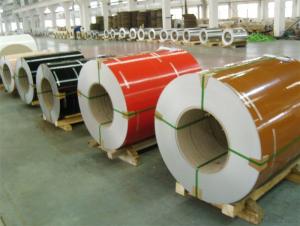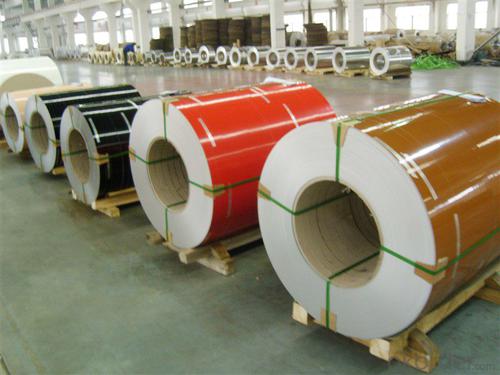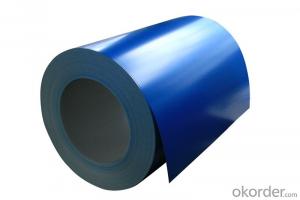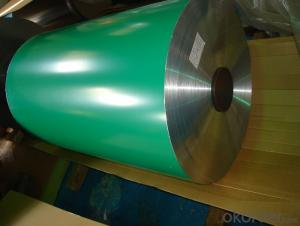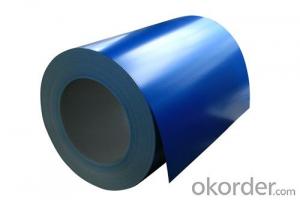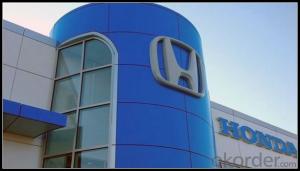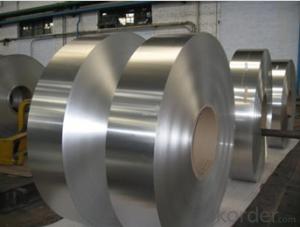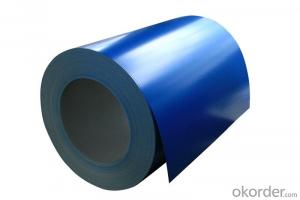Skidded Aluminum Coils - PE Painted Aluminum Coils in Coil Form with Best Quality
- Loading Port:
- Shanghai
- Payment Terms:
- TT OR LC
- Min Order Qty:
- 5 m.t.
- Supply Capability:
- 1000 m.t./month
OKorder Service Pledge
OKorder Financial Service
You Might Also Like
Specification
1. Structure of PE Painted Aluminium in Coil Form With Best Quality Description
PE Painted Aluminium in Coil Form With Best Quality is one semi-finished aluminium material. This coil can be rolled down to aluminium coil,sheet,circle ect. The alloy AA1050 is widly used in building, industry ect. Its weight is much lower than steel. So many customers choosed aluminium material instead of steel.
2. Specification of PE Painted Aluminium in Coil Form With Best Quality
PE Painted Aluminium in Coil Form With Best Quality | |
Main Specification | |
Alloy | AA1xxx (AA1050, AA1060, AA1070, AA1100 etc.) |
AA3xxx (AA3003, AA3004, AA3005, AA3105 etc.) | |
AA5xxx, AA6XXX (AA5052,AA5083, AA5754, AA6061, AA6062 etc.) | |
AA8xxx(AA8011, AA8006 etc.) | |
Temper | H14,H16, H18, H22, H24, H26, H32,O/F, T4, T6, T651 |
Thickmess | 0.01mm-100mm |
Width | 30mm-1700mm |
Standard | GB/T 3880-2006/ASTM |
Special specification is available on customer's requirement | |
3. Application of PE Painted Aluminium in Coil Form With Best Quality
(1).Interior: wall cladding, ceilings, bathrooms, kitchens and balconies, shutters, doors...
(2).Exterior: wall cladding, facades, roofing, canopies, tunnels,column covers , renovations...
(3).Advertisement: display platforms, signboards, fascia, shop fronts...
4. Feature of PE Painted Aluminium in Coil Form With Best Quality
Surfact Quality :
Be free from Oil Stain, Dent, Inclusion, Scratches, Stain, Oxide Dicoloration, Breaks, Corrosion, Roll Marks, Dirt Streaks and other defect which will interfere with use,
Mechenical Property:
Chemical Composite and Mechanical Property
5. Certificate of PE Painted Aluminium in Coil Form With Best Quality
SGS and ROHS(if client request, paid by client), MTC(plant provided), Certificate of Origin(FORM A, FORM E, CO), Bureau Veritas and SGS (if client request, paid by client), CIQS certificate
6. Image of PE Painted Aluminium in Coil Form With Best Quality
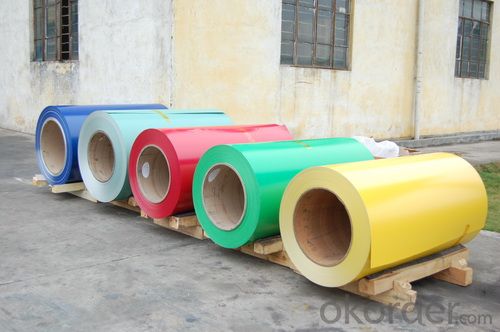
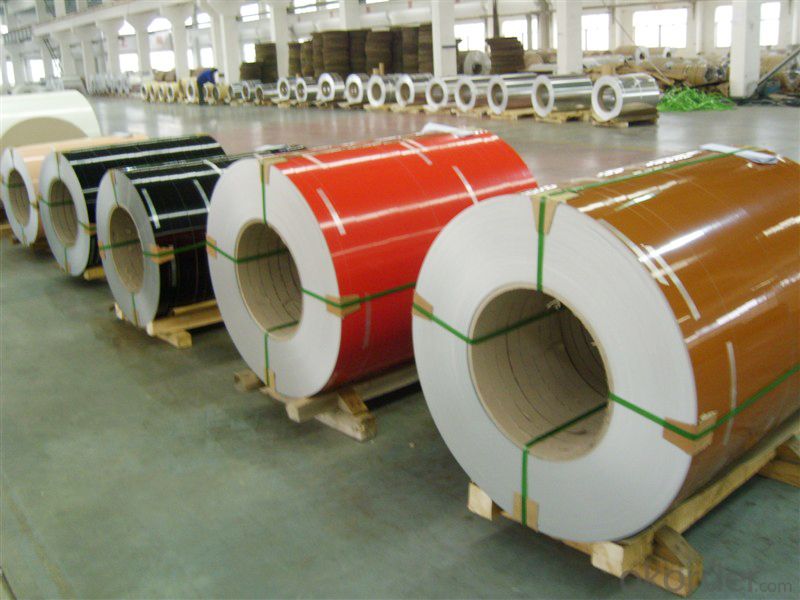
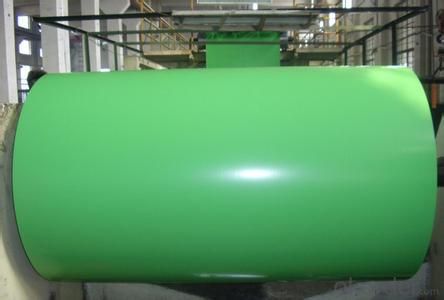
7. Package and shipping of PE Painted Aluminium in Coil Form With Best Quality
First, plastic cloth with drying agent inside; Second, Pearl Wool ; Third, wooden cases with dry agent , fumigation wooden pallets, aluminum surface could cover blue PVC film
8. FAQ
1) What is the delivery time?
Depends on actual order, around 20 to 35 days
2) What is the QC system:
We have QC staff of 20 persons and advanced equipment, each production is with MTC traced from Aluminum ingot lot.
3) What market do you mainly sell to?
Australia, America, Asia, Middle East, Western Europe, Africa etc
- Q: Are aluminum coils suitable for HVAC systems?
- Yes, aluminum coils are suitable for HVAC systems. Aluminum coils offer several advantages over traditional copper coils. They are more resistant to corrosion, which helps in increasing the lifespan of the HVAC system. Aluminum coils also have better heat transfer properties, allowing for more efficient cooling and heating. Additionally, aluminum coils are lighter in weight, making them easier to install and handle during maintenance or repairs. Overall, aluminum coils are a reliable and cost-effective option for HVAC systems.
- Q: Explain the distinction between standard and non-standard aluminum coils, focusing on their specifications and applications.
- <p>A standard aluminum coil is manufactured according to specific industry standards, such as thickness, width, and alloy composition, making it suitable for common applications like construction, automotive, and packaging. Non-standard aluminum coils, on the other hand, are tailored to meet unique customer requirements, featuring customized dimensions, alloys, or finishes that deviate from the norm. These are often used in specialized industries or for specific projects where standard coils do not meet the necessary specifications.</p>
- Q: Are aluminum coils suitable for marine environments?
- Due to their excellent corrosion resistance properties, aluminum coils are well-suited for use in marine environments. One of the reasons for this is that aluminum naturally develops an oxide layer on its surface, which acts as a protective barrier against saltwater corrosion. Consequently, aluminum coils demonstrate a high level of resistance to rust and deterioration caused by exposure to marine conditions. Furthermore, the lightweight nature of aluminum makes it an ideal choice for marine applications where reducing weight is crucial. Moreover, aluminum coils possess good thermal conductivity, which is advantageous for dissipating heat in marine cooling systems. All in all, aluminum coils are a dependable and durable option for marine environments, guaranteeing long-lasting performance and minimal maintenance needs.
- Q: Can aluminum coils be used in the production of aluminum gutters?
- Yes, aluminum coils can be used in the production of aluminum gutters. Aluminum coils are commonly used in the manufacturing process of aluminum gutters to form the desired shape and dimensions of the gutter system.
- Q: What are the different tensile strengths of aluminum coils?
- The tensile strength of aluminum coils can vary depending on the specific alloy and temper of the aluminum used. Aluminum alloys commonly used for coils include 1100, 3003, 5052, and 6061. The tensile strength of these alloys can range from approximately 13,000 psi (90 MPa) for 1100 aluminum to around 45,000 psi (310 MPa) for 6061 aluminum. The temper of the aluminum also plays a significant role in determining its tensile strength. The most common temper for aluminum coils is H14, which means the material has been strain-hardened and partially annealed to achieve a balance of strength and formability. Other tempers such as H18, H24, and H32 can result in higher tensile strengths, whereas softer tempers like O (annealed) or H12 can have lower tensile strengths. It is important to note that these values are general ranges and can vary slightly depending on the specific manufacturer and production process. Additionally, factors such as thickness, width, and surface treatment of the aluminum coils can also influence their tensile strength. Therefore, it is recommended to consult the manufacturer's specifications or test the specific aluminum coil to accurately determine its tensile strength.
- Q: What are the common transportation methods for aluminum coils?
- Aluminum coils can be transported using various methods such as trucking, rail, and shipping. When prompt delivery or short distances are involved, trucking is commonly employed. To ensure secure transit, aluminum coils are loaded onto specialized trailers equipped with cradles or coil racks. This approach provides flexibility and easy access to different locations. For long-distance shipments, rail transportation is frequently utilized. Railcars specifically designed to accommodate the weight and dimensions of aluminum coils are used for loading. This transportation method is advantageous due to its cost-effectiveness and ability to transport large quantities of coils in a single shipment. When it comes to international shipments, shipping by sea is a popular choice. Aluminum coils can be loaded onto cargo ships either in specialized containers or directly on the ship's deck. Shipping offers the benefit of transporting large volumes of coils over long distances and is often preferred for global distribution due to its efficiency and cost-effectiveness. Ultimately, the choice of transportation method for aluminum coils depends on factors such as distance, urgency, quantity, and destination. Companies must carefully consider these factors in order to determine the most suitable transportation method for their specific needs.
- Q: Which type of wheel is more durable, long-lasting and which wheel type would cost more, Aluminum or chrome?
- i like aluminum although it does wear easily.
- Q: What are the potential applications of brushed aluminum coils?
- Brushed aluminum coils have a wide range of potential applications in various industries. They are commonly used in architectural and interior design projects, such as cladding, roofing, wall panels, and decorative elements. Additionally, brushed aluminum coils are suitable for manufacturing kitchen appliances, automotive parts, electronics, and signage due to their aesthetic appeal, durability, and corrosion resistance.
- Q: Can aluminum coils be used in extreme weather conditions?
- Yes, aluminum coils can be used in extreme weather conditions. Aluminum is a highly durable and corrosion-resistant material that can withstand harsh weather conditions such as extreme heat, cold, humidity, and even heavy rain or snow. It is frequently used in applications where weather resistance is crucial, such as in air conditioning systems, refrigeration units, and outdoor equipment. Aluminum coils are designed to be strong and reliable, making them suitable for use in extreme weather conditions without compromising their performance or longevity.
- Q: What are the common quality control measures for aluminum coil manufacturing?
- There are several common quality control measures that are implemented in the aluminum coil manufacturing process to ensure the production of high-quality products. 1. Raw material inspection: The first step in quality control is to thoroughly inspect the raw materials, including the aluminum alloy used for the coil. This involves checking for any impurities or defects that could affect the final product. 2. Dimensional inspection: Throughout the manufacturing process, dimensional inspection is carried out to ensure that the aluminum coils meet the required specifications. This includes measuring the thickness, width, length, and diameter of the coils. 3. Surface inspection: The surface of the aluminum coils is inspected to detect any visual defects such as scratches, dents, or marks. This can be done visually or through the use of specialized equipment such as cameras or scanners. 4. Mechanical properties testing: Mechanical properties such as tensile strength, yield strength, elongation, and hardness are crucial in determining the quality of aluminum coils. Testing these properties ensures that the coils meet the necessary strength and performance requirements. 5. Chemical composition analysis: Aluminum alloys used for manufacturing coils must meet specific chemical composition standards. Regular analysis of the chemical composition is done to verify that the alloy meets these standards and to identify any deviations that may affect the quality of the final product. 6. Coating inspection: If the aluminum coils are coated or treated with a protective layer, the coating is inspected for uniformity, adhesion, and thickness. This ensures that the coils have proper corrosion resistance and aesthetic appearance. 7. Packaging inspection: Before the final products are shipped, packaging inspection is conducted to ensure that the coils are properly packed, labeled, and protected during transportation. This includes checking for any damage or contamination that may have occurred during the packaging process. Implementing these quality control measures helps to identify and rectify any defects or deviations in the manufacturing process, ensuring that the aluminum coils meet the required standards and customer expectations.
Send your message to us
Skidded Aluminum Coils - PE Painted Aluminum Coils in Coil Form with Best Quality
- Loading Port:
- Shanghai
- Payment Terms:
- TT OR LC
- Min Order Qty:
- 5 m.t.
- Supply Capability:
- 1000 m.t./month
OKorder Service Pledge
OKorder Financial Service
Similar products
Hot products
Hot Searches
Related keywords
